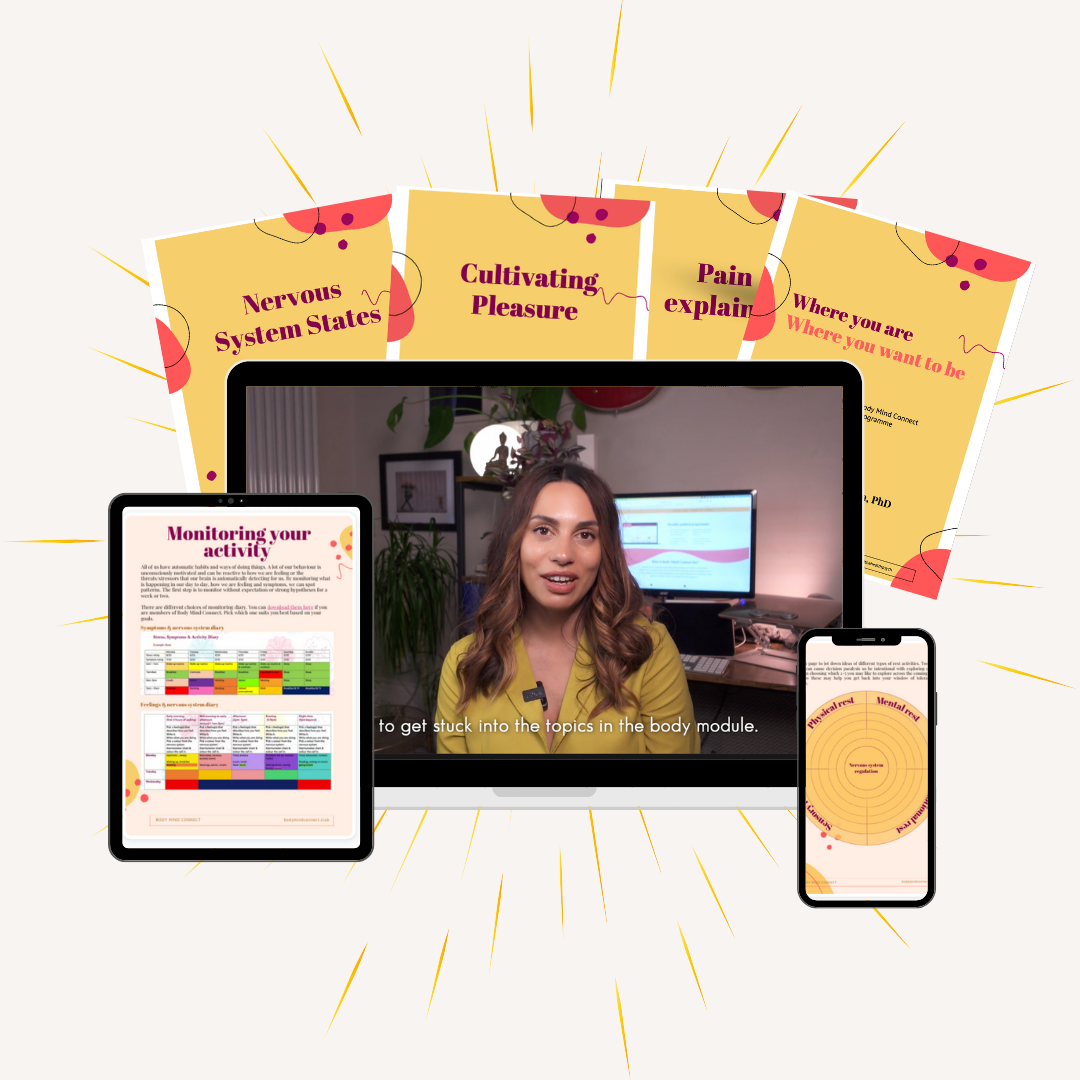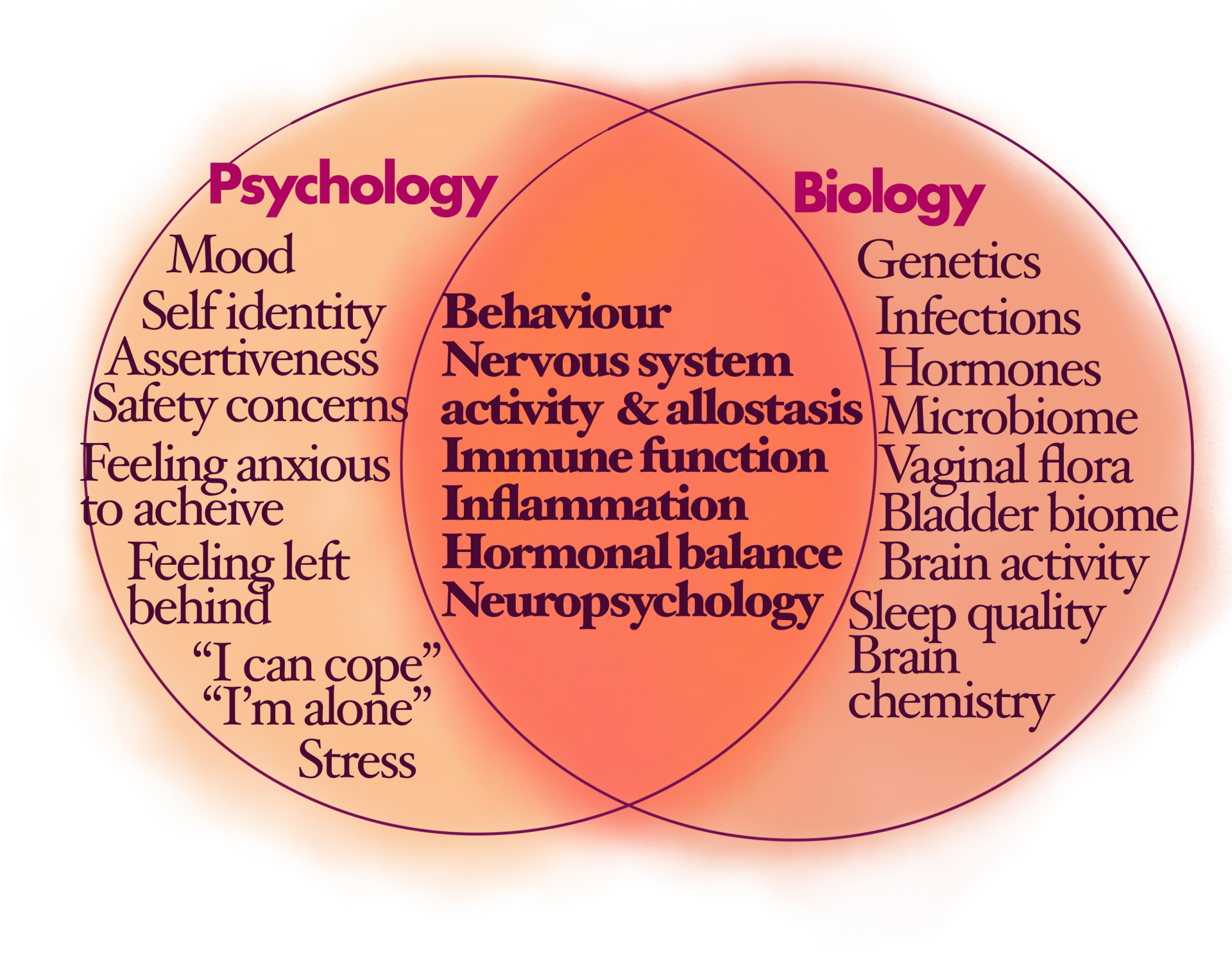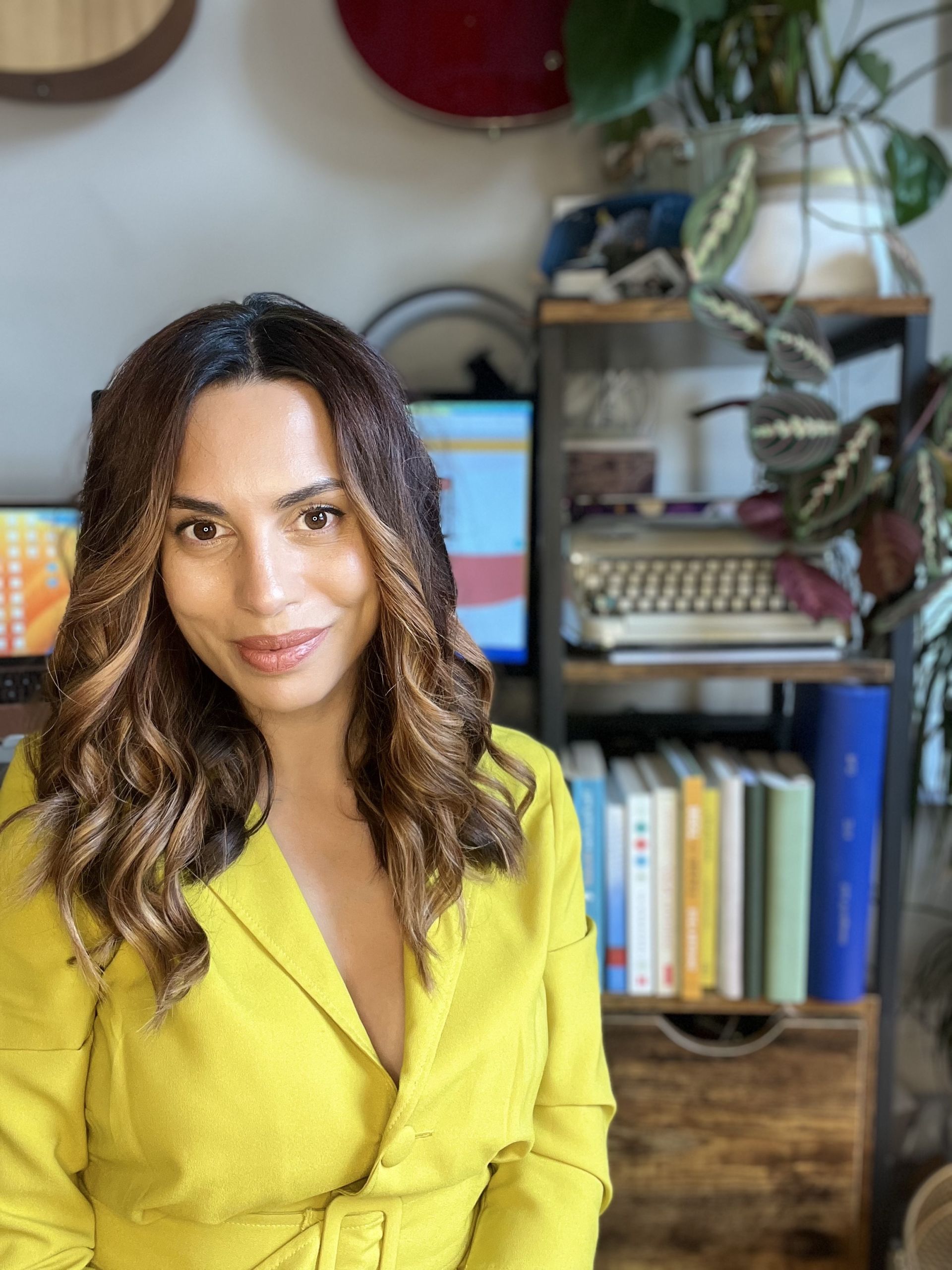Finding freedom & joy in endometriosis & adenomyosis
Now you get to be heard & understood. Now you get to shed some of the pressure of researching the best way forward. Now we help you heal the wounds of the journey so far and feel hopeful for the future & confident in yourself.


Navigating endometriosis & adenomyosis is confusing, isolating & exhausting
What can I expect from this course & community?
Endometriosis & adenomyosis affect mental health. But you do not automatically have a mental health disorder if you are emotionally affected by your condition. Navigating symptoms is hard. Using psychology to make it easier should not be reduced down to working on your mood alone. That may be one part of the puzzle, but often it is just one part.
This course uses a "biopsychosocial" approach. It aims to improve your overall illness experience through nurturing the mind-body connection and working with the realities of your wider life (work, health appointments, friendships and relationships). We can use psychology to look after our bodies & help them heal.
This course uses a "biopsychosocial" approach. It aims to improve your overall illness experience through nurturing the mind-body connection and working with the realities of your wider life (work, health appointments, friendships and relationships). We can use psychology to look after our bodies & help them heal.
There is a lot to heal from in endometriosis & adenomyosis: medical gaslighting, surgery, diagnostic procedures and medical interventions that have disrupted your equilibrium. Healing is a holistic concept and it needs a holistic approach.
When you are told there is nothing else that needs to be done when you are in agony and unable to function, you can start to question yourself. "Am I just anxious?" Or you can get angry. "No one understands!" Both maybe.
If you are referred to therapy you may feel fundamentally misunderstood and fobbed off - this is not a mental health issue! You are physically suffering. If you are referred to therapy and the therapist has little understanding of your condition or training in using evidence-based psychological approaches for long term conditions, they may add to your questioning and feeling unheard. Even when they have the best of intentions.
As a health psychologist with over a decade of experience helping people with health conditions to improve symptoms, mood, confidence and everyday life, I know how important it is to have a truly holistic approach tailored to your specific health difficulties.
I know what makes something feel hopeful, empowering and achievable rather than overwhelming and minimising. I know what techniques and approaches are really evidence-based and what are fads and pseudoscience. I've done all of the research so you don't have to.
This course is about taking the pressure off you. It's about truly taking stock of what you have been dealing with and acknowledging yourself. It allows you to develop a range of skills and strategies that you would never otherwise be taught or get access to. These skills are based on mind-body science and 1000s of peer-reviewed publications. They are not fancy or complicated but they can be completely counterintuitive. They can be scary when you try them out. That is why you need to be able to trust that you're getting the right guidance. That is why you need an opportunity to ask questions and get feedback.
This is what Body Mind Connected: Endometriosis & Adenomyosis will provide. You have enough adding to your decision fatigue. In this course, you can be guided in the science, encouraged to try things out, reflect, get feedback and then move forwards from there. You can go at your own pace and you can connect with others who are doing the same thing.
When you are told there is nothing else that needs to be done when you are in agony and unable to function, you can start to question yourself. "Am I just anxious?" Or you can get angry. "No one understands!" Both maybe.
If you are referred to therapy you may feel fundamentally misunderstood and fobbed off - this is not a mental health issue! You are physically suffering. If you are referred to therapy and the therapist has little understanding of your condition or training in using evidence-based psychological approaches for long term conditions, they may add to your questioning and feeling unheard. Even when they have the best of intentions.
As a health psychologist with over a decade of experience helping people with health conditions to improve symptoms, mood, confidence and everyday life, I know how important it is to have a truly holistic approach tailored to your specific health difficulties.
I know what makes something feel hopeful, empowering and achievable rather than overwhelming and minimising. I know what techniques and approaches are really evidence-based and what are fads and pseudoscience. I've done all of the research so you don't have to.
This course is about taking the pressure off you. It's about truly taking stock of what you have been dealing with and acknowledging yourself. It allows you to develop a range of skills and strategies that you would never otherwise be taught or get access to. These skills are based on mind-body science and 1000s of peer-reviewed publications. They are not fancy or complicated but they can be completely counterintuitive. They can be scary when you try them out. That is why you need to be able to trust that you're getting the right guidance. That is why you need an opportunity to ask questions and get feedback.
This is what Body Mind Connected: Endometriosis & Adenomyosis will provide. You have enough adding to your decision fatigue. In this course, you can be guided in the science, encouraged to try things out, reflect, get feedback and then move forwards from there. You can go at your own pace and you can connect with others who are doing the same thing.



